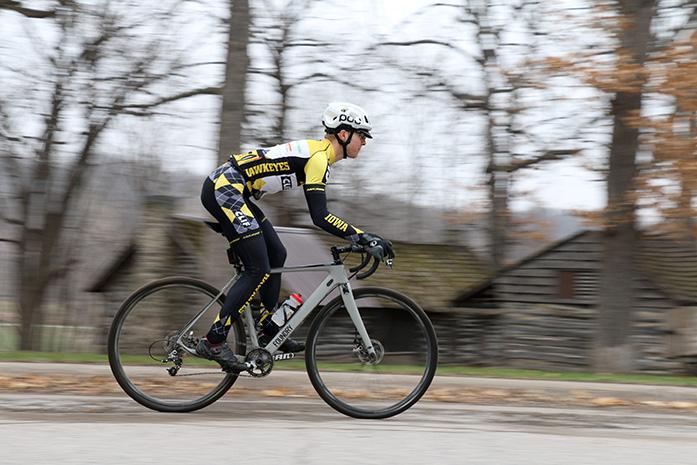New bike sharing could start in Iowa City next spring.
By Alex Kramer
alexandria-kramer@uiowa.edu
A bike-sharing system in Iowa City is about to materialize.
The project, which will allow people to rent a bike for use during the day, has received around $227,000 in funding from various sources — including the Clean Air Grant, the Coca-Cola Grant, University of Iowa organizations, and more, said Willy Tan, the sustainability intern at the University of Iowa’s Office of Sustainability.
The timeline is going as expected, Tan said, though it is moving slowly because everything must go through the city of Iowa City. The program should appear next spring or summer.
“It’s a joint project, which is unique, as most do not do joint bike-sharing projects between the city and the university. It’s usually one or the other,” Tan said. “We’re trying to do something special where both parties co-own it just because they work so closely hand-in-hand anyway.”
Organizers plan on having three or four stations with 10 to 15 bikes each, Tan said.
“The kiosks are very expensive, so we thought it would be good to invest in them to start this program,” he said. “This way, adding on later will be cheaper and safer than having just bikes with locks on them.”
It is currently unclear what the exact price will be. Organizers will hold focus groups to garner input on top of what the vendors of the bikes suggest, but there will most likely be a discount for students, Tan said.
He said there would be a 50 percent reduction for a one-year membership.
“Once you have a yearly membership, you can check out a bike for an hour any time you want,” he said. “And as long as you get it back within the hour, it’s free.”
The UI is not the only school looking into bike sharing. Iowa State University and the University of Illinois both have programs in the works.
“The program at ISU is a different model than Iowa City’s,” said Merry Rankin, the ISU director of sustainability. “Instead of wanting to work with an outside vendor, we are allowing our students to be in that consulting role.”
Iowa State’s project started as an educational and research opportunity in which students designed bikes, kiosks, and trails, gaining hands-on experience from the program, Rankin said.
“It’s a much different framework but still geared toward the end result of wanting to offer a bike-sharing program,” she said.
The University of Illinois has recently launched a bike-sharing program as well, said Evan DeLucia, the director of the Institute for Sustainability of Energy and Environment at the University of Illinois-Urbana/Champaign.
“This semester, I believe, we will begin purchasing our first bikes,” DeLucia said. “Then we will begin working out the challenges of getting a program like this going.”
The program hopes to grow area-wide to reduce the carbon footprint, an action and benefit the institute promotes aggressively, he said.
“It will start on campus. Then it is our hope that we can demonstrate the value of the bike-sharing program and partner with neighboring communities,” DeLucia said. “We’re just getting started small, but we hope to ramp up over the next couple years.”
Transportation costs would go down because of losing the typical expenses of owning, insuring, operating, and maintaining vehicles, Rankin said. There is also social sustainability, she said: peace related to the exercise and the different health benefits linked to biking versus driving.
“The bike system will benefit students greatly because they only have to pay a small fee to use these bikes, with no upkeep,” Tan said. “It will get them around in a quicker, more individualized way than the bus system.”



